Martin, an architect (not a Stride Treglown’er), has lived in 325 Fishponds since July 2016 with his wife and two children.
Here, he bares all about his experience of a self-finish housing project.
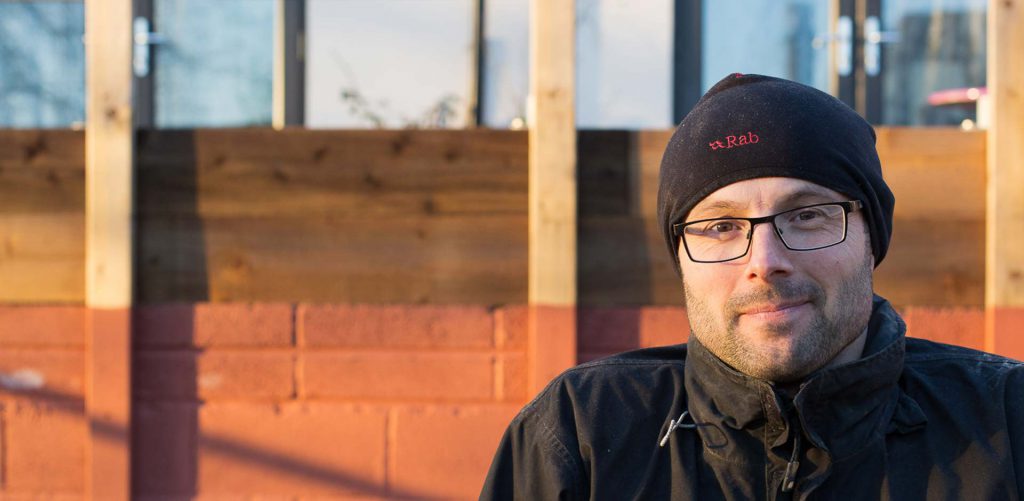
Martin, first of all, do you enjoy living here?
I love it. Funnily enough, although I’m an architect, it’s not the spaces; it’s the communal aspect I enjoy most.
It’s quite open and we’ve all worked together to self-finish the project. As a group we’ve done all the decorating. We’ve laid floors, fitted kitchens, tiled bathrooms. We’ve done all the landscaping too. Even the gate post that I’m just doing now.
We’ve done a lot of work. We have meetings every couple of weeks to run through things, so the social aspect with everyone getting involved has been the highlight.
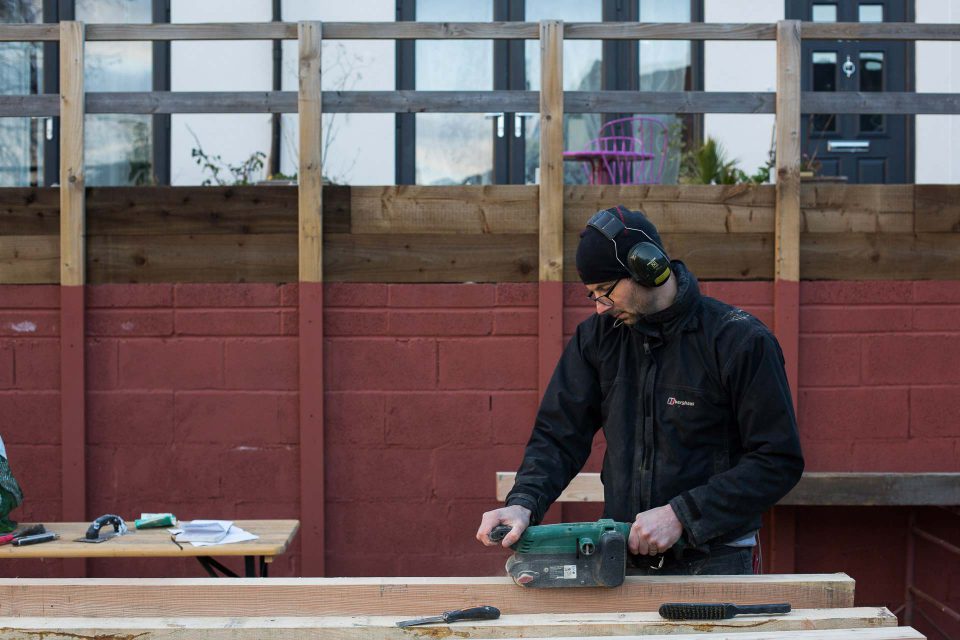
Does everyone here have a trade background?
No. I’ve got one, I used to be a decorator and I’ve done some low skill building work. Personally it means I’m able to build things that I draw which is great. It’s enriched how I design, how I draw and how I think.
But, no, not everyone. There were some people who had no skills at all and that wasn’t always easy because they were learning on the job. Even some of the fairly basic stuff, like using an impact driver, chop saw, how to put stuff level and all those kind of things. So that’s been challenging for us as a group, but we’ve all learnt a lot. The challenges have probably brought us closer together.
I love it, funnily enough, as an architect, it’s not the spaces; it’s the communal aspect of it.

Did you realise just how much commitment it would take?
As part of the self-finishing element there was a contract to say we should do between 8 to 12 hours a week for 12 months. For me that was fine, it meant taking a day off a week and I’ve done it. But I don’t think some of the others had realised what that commitment would mean, so yeah, there’s been a few surprises.
Like you said a lot of people perhaps didn’t have the basic skills to do this
Yes I think there’s been some expectation that the contractors would be more on-board with the ethos of it all. When they were finishing their second fit, we were on site doing decorating and fitting kitchens while they were doing the plumbing and the electrics.
By the end, understandably, they just wanted a clear run so they can finish it and get onto their next job. We were complicating things by asking “Can you do this or do that?” So from that perspective, it wasn’t so too well managed.
Perhaps we were naïve about what the builders would do, expecting them to say “Yeah, come over and we’ll teach you how to fit skirting boards and stuff.” But, obviously, they were just busy getting their work finished.
In the end, I was teaching people how do a lot of the things we needed to do.
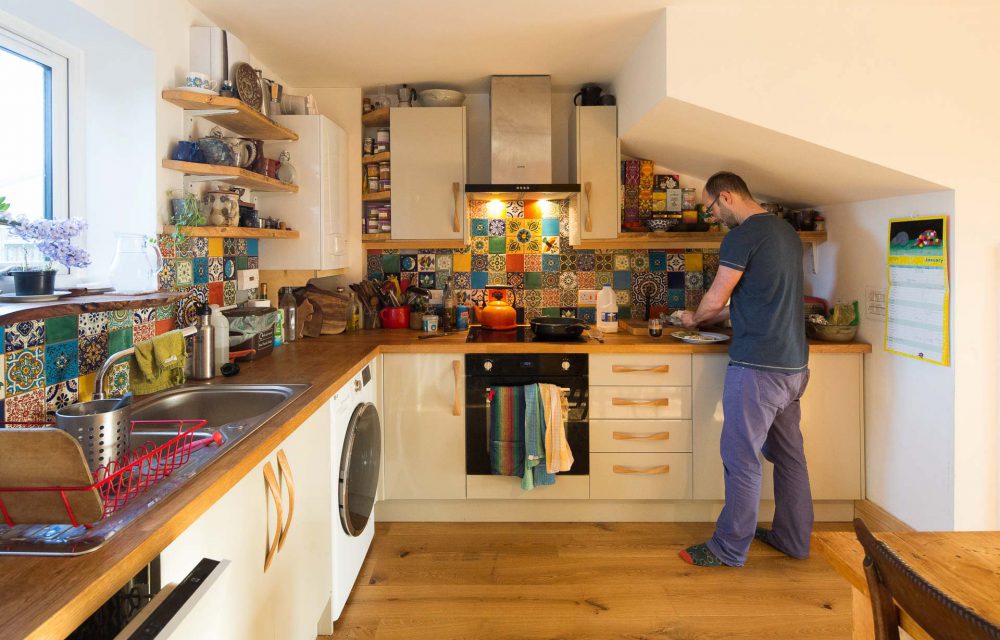
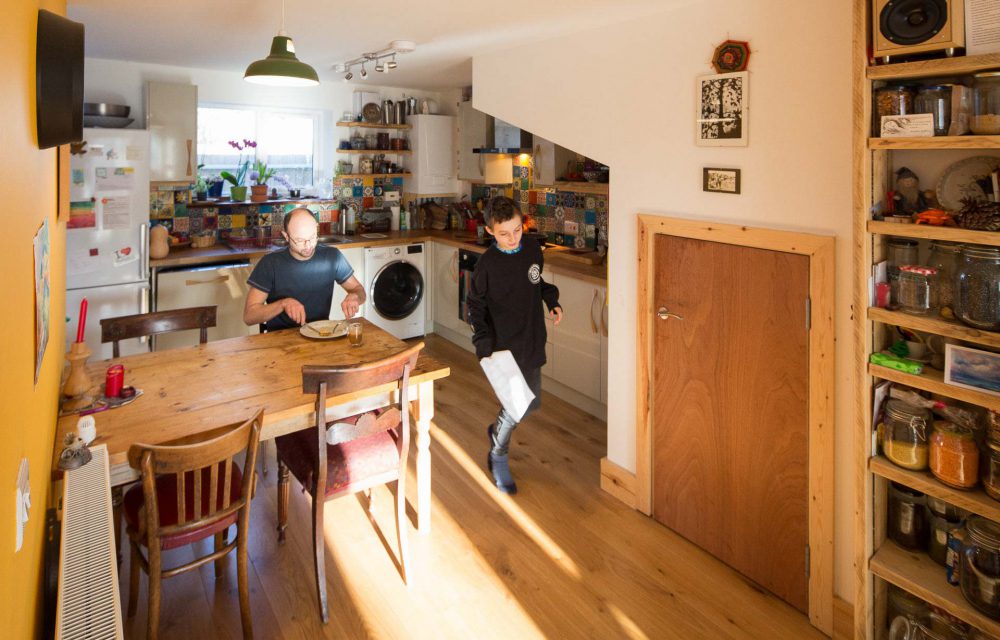
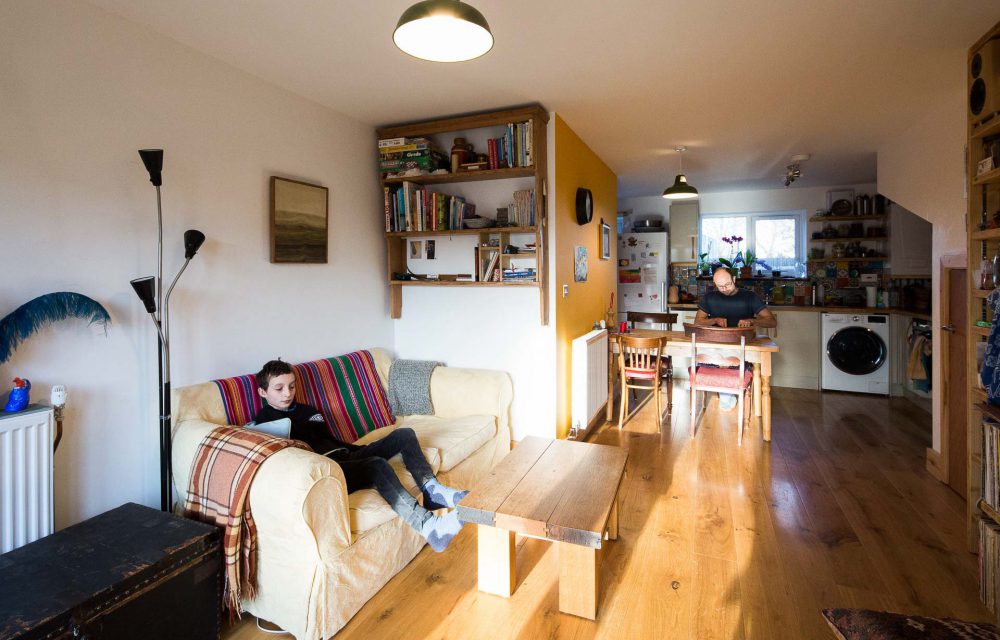
So, with you helping everyone out so much, has there been anything in exchange?
We all earn what’s called ‘sweat equity’ and that’s the hours you do. You earn equity in the building, or if you’re renting, you earn that money off your rent. It’s a flat rate for everyone, no matter their level of skill.
As you can imagine, that is quite political, because some people do far more hours than others and are more skilled, or are juggling this with other full time, stressful jobs.
It’s about finding that difficult balance between community spirit and getting a fair return for your efforts.
What about your children?
Yeah, it’s great. It’s a shared landscape and there’s a natural surveillance with that which works really well. The park is amazing too because they can run around and play basketball or tennis.
It also means they know our neighbours, and my sister lives over there so there’s an open door policy; they’ve got keys to our house and they come and go. It’s a really nice feeling of knowing people.
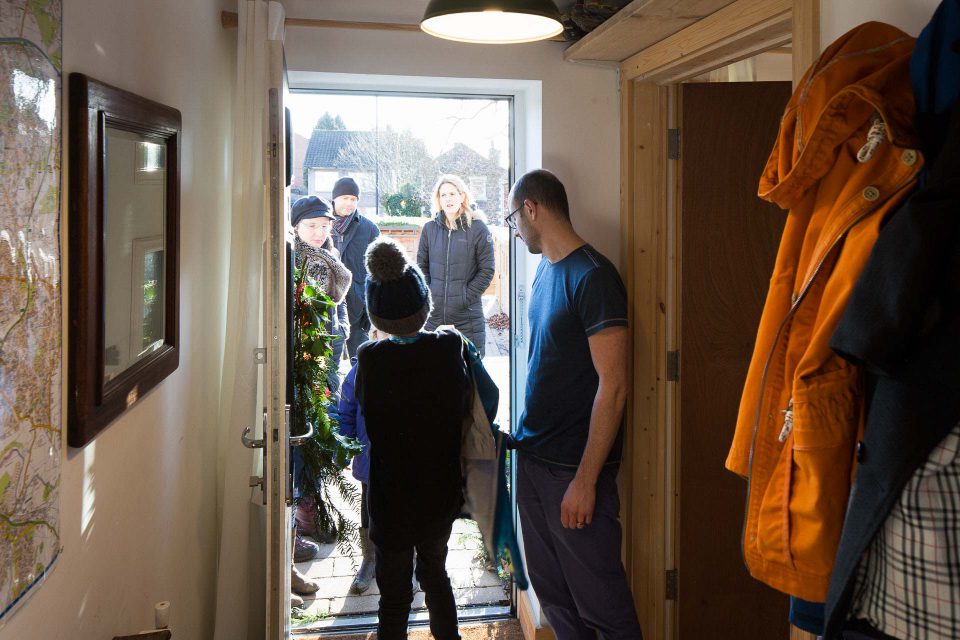
How about the other neighbours?
There’s definitely a social element. A lot of it has been work-focused, but we’ve had Christmas drinks, barbeques in summer, fireworks and bonfire nights.
Previously, we lived in a terraced house in the middle of a street and knew our neighbours by name, but that was it. Whereas now, you come home and you know everyone, so it’s really nice.
It also forces you to confront stuff that you would probably spend years avoiding because when you live side by side with people and you know them, people are more honest.
Because we meet up regularly as a group, we have a forum for doing that. You don’t just sit in your house complaining about people behind closed doors. You go and say, “Look there’s an issue with this, and we need to sort it out”.
And finally, how would you sum up self-finish housing?
It’s a much more honest way of living; like a village would have been, people would have been more open about their business and that’s good and bad.
It’s very rewarding. That’s why we signed up. There’s the self-finish element, there’s the affordable house element, but the big thing is the communal aspect. That’s what drew us the most.